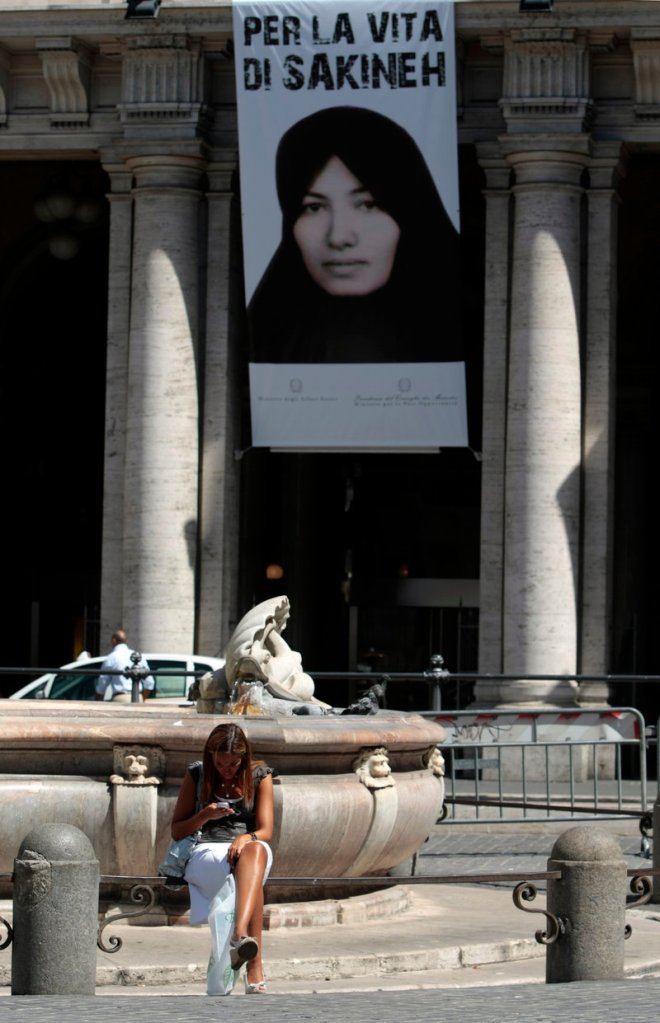TEHRAN, Iran — The international crossfire over Iran’s stoning sentence for a woman convicted of adultery intensified Tuesday. A top European Union official called it “barbaric,” and an Iranian spokesman said it’s not a human rights issue, it’s about punishing a criminal.
The sharp words from both sides provided a snapshot of the dispute: Western leaders are ramping up pressure to call off the sentence for Sakineh Mohammadi Ashtiani, while Iran is framing it as a matter for its own courts and society.
The case of the 43-year-old mother of two also spills over for Iran’s Islamic leaders into larger and even more complex issues of national sovereignty and defense of their system of justice.
Iranian authorities routinely defend their legal codes and human rights standards as fully developed and in keeping with the country’s traditions and values. They have widely ignored Western denunciations over the crackdowns after last year’s disputed presidential election.
Iran’s Foreign Ministry spokesman, Ramin Mehmanparast, showed Tuesday that the Islamic state was willing to push back just as hard as the West – at least with rhetoric.
“If release of all those who have committed murder is considered defending human rights, all European countries can free murderers in defense of human rights,” he told reporters.
Ashtiani’s stoning sentence was put on hold in July and is being reviewed by Iran’s supreme court. Iranian authorities also say she has been convicted of playing a role in her husband’s 2005 murder.
But her lawyer, Houtan Javid Kian, says she was never formally put on trial on the charge of being an accomplice to murder and was not allowed to mount a defense.
At the European parliament, European Commission President Jose Manuel Barroso said he was “appalled” by the news of the sentence. “Barbaric beyond words,” he said during his first State of the Union address in Strasbourg, France.
The case also has been wrapped up in claims of Iranian missteps and abuses. Last month, Iranian authorities broadcast a purported confession from Ashtiani on state-run television. A woman identified as Ashtiani admitted to being an unwitting accomplice in her husband’s killing. Kian said he believes she was tortured into confessing.
Then on Monday, Kian said he received word that his client was lashed 99 times last week in a separate punishment after a British newspaper ran a picture of an unveiled woman mistakenly identified as Ashtiani. The newspaper, the Times of London, later apologized for the error.
There was no official Iranian confirmation of the new punishment.
Send questions/comments to the editors.



Success. Please wait for the page to reload. If the page does not reload within 5 seconds, please refresh the page.
Enter your email and password to access comments.
Hi, to comment on stories you must . This profile is in addition to your subscription and website login.
Already have a commenting profile? .
Invalid username/password.
Please check your email to confirm and complete your registration.
Only subscribers are eligible to post comments. Please subscribe or login first for digital access. Here’s why.
Use the form below to reset your password. When you've submitted your account email, we will send an email with a reset code.